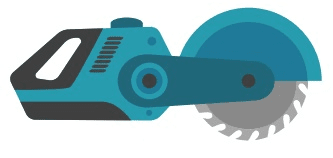The Most Powerful Sources Of Inspiration Of Circular Saw Battery

The Rise of Circular Saw Battery-Powered Tools: An In-Depth Exploration
In the last few years, the world of power tools has actually seen a significant transformation, with the arrival of battery-powered models taking center stage. Amongst these advancements, battery-powered circular saws have become progressively popular among both specialists and DIY lovers. This short article looks into the advantages, functions, and considerations of using a battery-powered circular saw, together with comparative tables and a detailed FAQ area.
The Advantages of Battery-Powered Circular Saws
Battery-powered circular saws present a myriad of advantages over conventional corded models. Below is a list of some key advantages:
- Portability: The lack of cords permits higher movement, making it possible for users to run in areas where traditional saws can not be utilized efficiently.
- Reduce of Use: Battery-powered models generally weigh less and offer a simpler setup, making them user-friendly for both skilled craftsmen and newbies.
- Safety: The removal of cords lowers trip dangers on job sites, improving total security throughout usage.
- Flexibility: With numerous blade sizes and types readily available, battery-powered circular saws can perform a variety of cutting jobs on various materials.
- Decrease in Noise and Vibration: These designs frequently operate with less noise and vibration, which adds to a more enjoyable workplace.
Secret Features and Considerations
When selecting a battery-powered circular saw, particular functions ought to be examined to make sure ideal efficiency. Below is a table laying out important functions and their implications for user experience:
| Feature | Description | Importance |
|---|---|---|
| Battery Voltage | The greater the voltage, the more power and runtime. | Essential for sturdy applications. |
| Blade Size | Common sizes include 6.5", 7.25", or 8". | Impacts the depth of cut and versatility. |
| Weight | Light-weight models are simpler to maneuver. | Effects user tiredness, especially over extended usage. |
| Max Cutting Depth | Determines product density abilities. | Crucial for specific projects. |
| Safety Features | Includes electric brakes and safety guards. | Boosts user security during operation. |
| Cost | Ranges from affordable to premium models. | Balances efficiency with budget constraints. |
Battery Technology: Key Types
Battery-powered circular saws usually utilize two primary types of battery innovations: Lithium-Ion (Li-ion) and Nickel-Cadmium (NiCad). Below is a contrast of these 2 widespread battery types:
| Battery Type | Pros | Cons |
|---|---|---|
| Lithium-Ion | - Higher energy density - Lighter weight - No memory result - Longer life-span | - More pricey upfront - Sensitive to severe temperature levels |
| Nickel-Cadmium | - Cost-effective - Durable - Performs well in cold conditions | - Heavier - Shorter lifespan - Prone to memory result |
Suggestions of Battery-Powered Circular Saws
Offered the myriad of options readily available on the market, below is a curated list of popular battery-powered circular saws, each noted for its dependability and efficiency:
| Model | Voltage | Blade Size | Weight | Max Cutting Depth | Cost Range |
|---|---|---|---|---|---|
| DeWalt DCS570B | 60V | 7.25" | 7.3 pounds | 2.75" | ₤ 219 - ₤ 250 |
| Milwaukee M18 FUEL 2732-20 | 18V | 7.25" | 6.8 pounds | 2.5" | ₤ 169 - ₤ 199 |
| Makita XSH06Z | 18V | 7.25" | 9.0 lbs | 2.5" | ₤ 249 - ₤ 299 |
| Ryobi P508 | 18V | 7.25" | 5.8 pounds | 2.5" | ₤ 89 - ₤ 119 |
| Bosch GKS18V-25G | 18V | 7.25" | 9.2 pounds | 2.5" | ₤ 199 - ₤ 249 |
Upkeep and Care
Like all tools, appropriate maintenance significantly extends the life of battery-powered circular saws. Here are some essential tips to make sure longevity:
- Regular Cleaning: Remove sawdust and debris from the blade and housing after each use.
- Blade Replacement: Always change blunt or broken blades to keep ideal cutting efficiency.
- Battery Care: Store batteries in a cool, dry place and prevent complete discharges to extend life-span.
- Evaluation: Regularly check electric brakes and safety functions to ensure they function correctly.
Frequently Asked Questions (FAQ)
1. The length of time do the batteries last?
Battery life can differ based upon the voltages and the type of products being cut. On average, you can anticipate 30-90 minutes of runtime before requiring a recharge.
2. Are battery-powered circular saws as powerful as corded ones?
Yes, modern-day battery-powered saws match or even exceed the power of their corded equivalents, especially those designed with higher voltage batteries.
3. Can I use a battery-powered circular saw for heavy-duty jobs?
Definitely, lots of battery-powered circular saws can manage durable tasks, however it's vital to choose one with appropriate voltages and features matched for heavy cutting.
4. How do I choose the ideal blade for my battery-powered circular saw?
Select blades based upon the material to be cut (wood, metal, and so on), preferred cut type (rip, crosscut), and the thickness of the material.
5. Can I utilize my battery-powered circular saw inside?
Yes, battery-powered tools are ideal for indoor jobs due to their portability and security, but it's vital to make sure adequate ventilation when cutting products that produce dust.
Battery-powered circular saws are rapidly becoming favored tools in both professional and DIY settings. Offering portability, ease of usage, and security, these saws represent a significant leap forward in tool innovation. Carefully assessing features and understanding battery innovation will ensure that users make an informed choice customized to their requirements. As Power Tools Online continues to evolve, battery-powered tools are showing to be not only a practical option but also a necessary part of contemporary toolkits.

